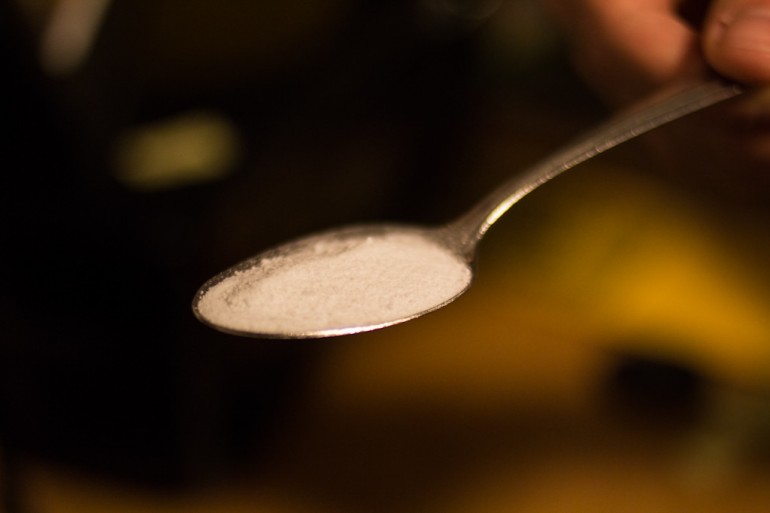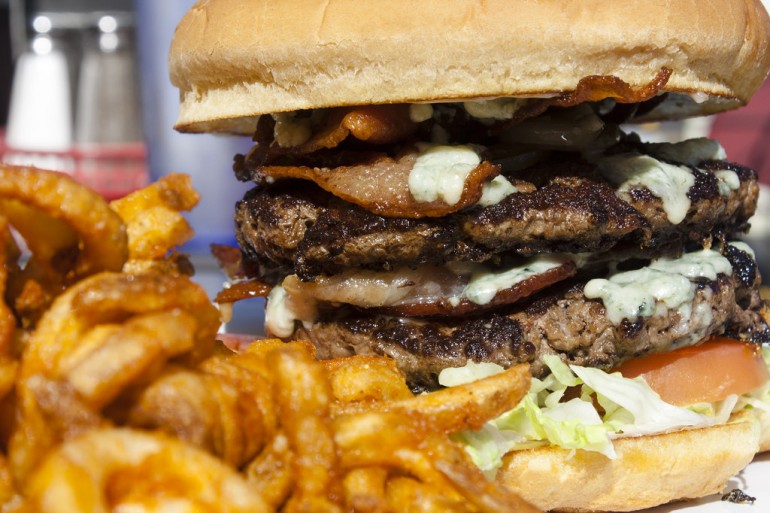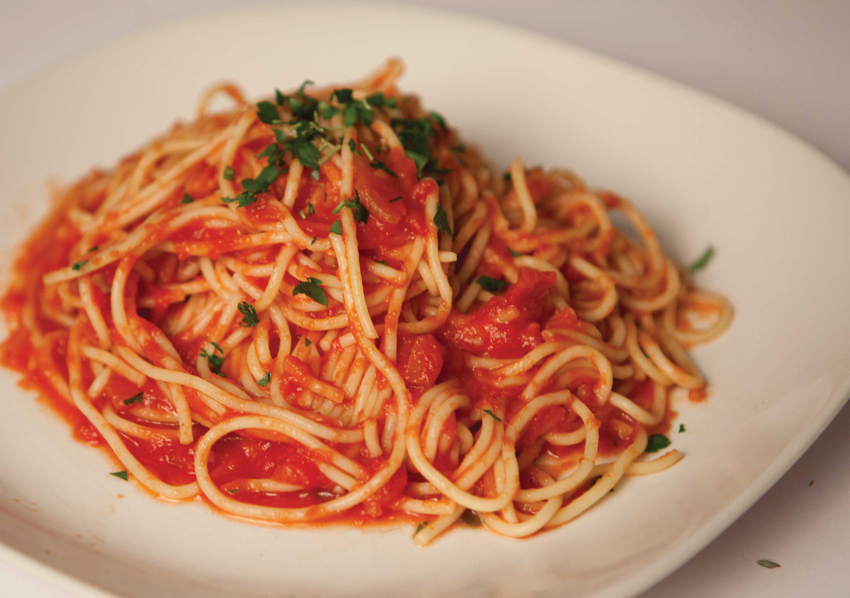You have a big exam coming up and while reading through seemingly infinite piles of material you console yourself by shoving a double bacon cheeseburger down your gullet. Or maybe you just went through a bad breakup and you’re blasting some Whitney Houston while crying into a bucket of ice cream. We’ve all been there.
But other than the extra workout you’ll have to do after the fact, what effects do comfort foods have on your body? Are these so-called “comfort” foods actually even comforting you?
Whether you’re reaching for a grilled cheese, pizza or cake in your time of need, there are three things that traditional comfort foods tend to have in common—sugar, fat and carbs. And the effects they have on your body are not necessarily comforting.

Photo by Christine Chang
A big fat bowl of ice cream may seem like just the thing when you’re sad or stressed out, but it’s really just the thing you need to avoid. There have been studies showing that sugar may actually be linked to depression. It suppresses the activity of BDNF, a hormone that has been shown to be low in people who have been diagnosed with depression. Countries with high sugar intake also tend to have a high rate of depression. Sugar may actually be the worst food to turn to during a stressful time, as it can worsen symptoms of anxiety and weaken your body’s ability to manage stress.

Photo by Inness Cheng
Have you ever noticed that after eating a big cheeseburger or a few slices of pizza you feel like taking a nap? That’s because foods with high fat content tend to make you feel tired and sluggish almost instantly. Your body has to work extra hard to digest fats, and since you’re expending energy doing that, you’ll have less energy to do other things (ahem, studying).
Similar to sugar, a high-fat diet is also linked to depression. There are “good fats”, such as the kinds you’ll find in fish or avocado. However, those are not the types of fats you’ll find in comfort food. Comfort food generally contains trans fats and saturated fats, which have been linked to an increased risk of depression.

Photo by Daniel Schuleman
Now for carbs. Who doesn’t LOVE carbs? I know I do. Luckily for us carb-lovers, this isn’t the worst thing on the list. In fact, people with low carb diets are more likely to be tired, irritable, depressed, or tense.
Carbs are imperative in helping tryptophan get to the brain. Tryptophan is often referred to as the chemical in turkey that makes us tired. What most people don’t know is that tryptophan occurs in most forms of protein, but not in high enough amounts to actually put us to sleep. Tryptophan does, however, increase production of serotonin—the “feel good” chemical.
But you can’t just eat carbs to boost your mood, no matter how delicious they are. The carbs you eat only act as a vehicle for tryptophan, so you need to get that chemical from protein.
Aside from serotonin production, carbs also suppress appetite causing you to eat less later on. We get most of our daily calorie intake from carbs, so make sure you’re eating healthier versions, like brown rice or whole wheat grains.
Carbs also produce a calming effect, so they actually are “comfort” food (there’s your good news).
Next time you feel stressed or depressed, don’t reach for the ice cream. You should grab something from this list of foods that actually are comforting:
- Protein helps you maintain a steady blood sugar level, which will enhance your mood and increase your energy.
- Omega 3, found in fish and nuts, improves mood and brainpower. Deficiencies in omega 3 have been linked to depression, hostility and anger.
- Dark chocolate contains “anandamide,” which is a chemical that suppresses pain and depression.
- Bananas contain dopamine, a mood-boosting chemical. They are also rich in vitamin B, which is necessary in order for tryptophan to produce serotonin.
- Coffee is bad for you in large quantities, as it will enhance feelings of anxiety. However, having a cup or two throughout the day releases BDNF, so it has the opposite effect as sugar.
- Berries are a great source of antioxidants, which help the brain produce dopamine.
- A gluten free diet won’t help you lose weight, but it may improve your mood, as gluten inhibits the production of serotonin.
- Organic food allows you to avoid the unnatural chemicals in processed foods (trans fats, MSG, artificial colors) that have been linked to irritability and diminished mood.
Want healthier versions of your favorite comfort foods? These articles have got you covered:

